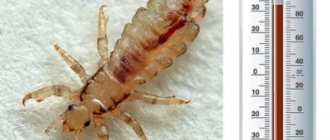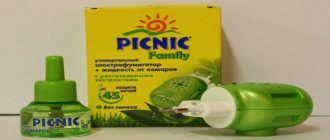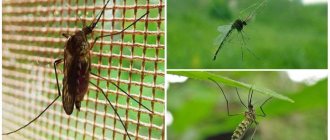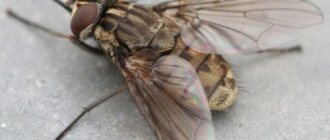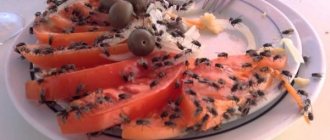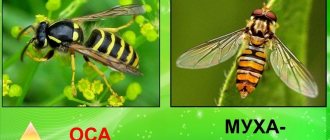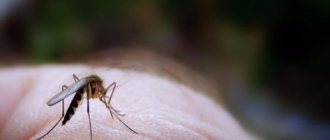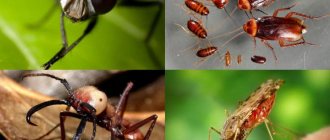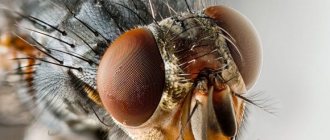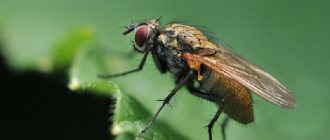Aromatic herbs against flies
Lemon with cloves against flies
In the summer, flies are a nuisance not only in nature or in rural areas. They can poison life even in the city. You can prevent their appearance if you know what smell repels flies.
Fly repellents
Among store-bought industrial insect repellents you can find insecticides and traps for every taste. But not everyone likes the use of chemicals, especially if there are children in the house. In addition, the chemical destroys insects, but does not repel them. She has other tasks.
You can stop flies from entering your home. To do this, use natural scents to repel them. You can ward off flies with the help of essential oils and aromatic plants. At the dacha, trees and flowers are planted, the smell of which insects do not like.
Preventive measures against the appearance of flies
Since any pests thrive in unsanitary conditions, the house must be kept clean:
- throw out waste on time,
- store food in the refrigerator,
- remove crumbs and dirt from the table,
- Be sure to carry out wet cleaning of the room.
In country houses, flies like to settle in various outbuildings , especially near livestock. Such rooms must be treated with weak solutions of vitriol. This allows you to get rid of the deposited larvae.
In warm weather, it is recommended to install special nets on windows and doors, as well as place indoor plants near the openings, the smell of which repels insects. In an apartment it can be an ordinary geranium. And a country house can additionally be lined with elderberry or bird cherry .
Remember that any threat is easier to prevent than to get rid of it.
Aromatic herbs
Among folk remedies, herbs for flies are the most popular. These include:
- tansy;
- lavender;
- mint;
- basil;
- rosemary;
- sagebrush;
- tomatoes.
Plants that repel flies release ethereal compounds that insects fear. Herbs are most effective when eaten fresh, or preferably alive. Some of these plants are best used against flies in the country, since they will not grow in the house, and in dry form they are ineffective.
- Tansy. An ancient Russian remedy. Tansy is used against flies during the flowering period. Plants are cut and hung in bunches on window frames and doorways. Flies fly around tansy for the first few days. Then the flowers dry out and begin to crumble to the floor.
- Sagebrush. Flies do not like the smell of this plant. The herb is used in the same way as tansy. With the same side effect. Only in this case, it is not the flowers that fall off, but small leaves.
- Lavender. The most popular essential oil against flies and mosquitoes is made from this plant. When used fresh, they are used in the same way as other herbs. With the same consequences.
- Tomatoes. It’s difficult to find a dacha without tomato beds, and flies can’t stand the smell of these nightshades. Part of the tops of tomato bushes must be removed. Cut pieces of stems are not thrown away, but placed on the windowsill to protect them from insects.
Plants that repel flies
In the life of a fly, the sense of smell plays a decisive role. The olfactory organs are located on the antennae of the insect, with their help it smells food from afar.
Flies are attracted to the smells of sweets, rotten vegetables and fruits, decomposed meat, feces and garbage cans. But some odors dramatically affect their sense of smell and disrupt their spatial orientation. These are the ones that certain plants and essential oils secrete. Having sensed them, the fly hurries to get away as far as possible.
To repel insects, such repellent plants are used in different ways: planted near the house and on the balcony, grown in flower pots, placed in bunches under the ceiling. Juice is extracted from them, infusions and decoctions are made, which are used to treat frames, openings and window sills.
In the southern regions, the walnut tree provides good protection against flies. Gazebos are installed under it and places for rest are equipped. The frames are treated with an infusion of the leaves, and parasites do not fly into the house, even if the windows are open.
Black elderberry planted near the house will provide protection against insects. It is not tolerated by flies, mosquitoes, bedbugs and mice. Bound branches are hung in rooms and utility rooms. Elderberry is poisonous and must be handled with gloves.
A jasmine bush growing near the house will decorate the area and protect it from insects. Bouquets of jasmine flowers placed in the room will repel parasites.
The following natural repellents work well to repel flies:
- wild rosemary;
- ivy;
- Rowan;
- horse chestnut;
- juniper;
- thuja
What to plant in the country
The good thing about a dacha is that you can plant a flower garden under the windows and plant garden plants in the beds to prevent flies. Such crops include almost all herbs.
Along the perimeter you can plant vegetation that can form a hedge:
- Walnut;
- bird cherry;
- black elderberry;
- laurel;
- thuja;
- juniper.
The last three trees grow in the southern regions.
On a note!
Calendula will look good among the flowers under the windows.
Characteristics of insects
There are several thousand species of flies in nature. Most of them cause harm to humans:
- bites and drinks blood;
- spoils food;
- becomes a spreader of serious diseases.
Regardless of the species, the fly has a head with compound eyes. Body covered with coarse hairs (sometimes without them) and abdomen. There are 2 pairs of wings on the back. Some are for flight, the second are halteres, for coordination in space.
About 90% of flies lay eggs, the remaining 10% are viviparous, that is, they “give birth” to larvae. In the first case, offspring appear after 3-14 days, depending on the species and climatic changes.
The larvae feed on decaying foods and plants. A typical representative found in homes and gardens includes:
- house fly;
- Drosophila;
- horsefly;
- carrion fly;
- whitefly
Whatever insect enters the garden or apartment, you need to get rid of it. This can be done using essential oil (EO).
What to grow in an apartment
Tansy or nuts do not grow well in an apartment. But there are flowers that have long been adapted to being kept in a pot on the windowsill to prevent flies. This is geranium. Her geranium phytoncides repel any pests. Geranium works equally well against flies and mosquitoes.
Interesting!
The most powerful variety of this plant is scented geranium. It has a stronger and more pleasant aroma than a regular plant. The fragrance of this flower repels insects throughout the room.
What smells get rid of flies in an apartment?
Repellent plants have a pungent odor that irritates and disorients insects. The phytoncides they secrete can kill flies. Insects cannot stay nearby and quickly leave the room. These smells have a beneficial effect on people, calm the nervous system and improve well-being.
The following natural fly repellents are grown on the windowsill or balcony:
- Geranium. The leaves of this plant secrete substances that affect the nervous system of insects. Under their influence, flies lose orientation and fly away.
- Lavender. It has a pleasant smell. It has long been used to repel flies, moths and mosquitoes. Lavender is grown in flower pots or in flowerpots on the balcony. Dried flowers are hung indoors and placed in closets with clothes.
- Aloe juice. It is used for medicinal purposes and to repel parasites. The juice is diluted with water and the resulting mixture is used to wipe the frames, window sills, and doorways. Aloe drives away flies flying around the room and scares away new ones.
- Tansy. Its smell is hated by both flies, ants, mosquitoes, and mice and rats. The grass releases a substance that disrupts the functioning of the nervous system and causes paralysis in insects. Bunches of flowering tansy are placed in the rooms, and powder from dried flowers and leaves is scattered. This powder protects meat from flies. Having sensed it, females will not lay eggs. It is important to remember that tansy is poisonous and causes stomach upset.
- Eucalyptus. To protect against insects, make a decoction that is used to wipe frames and window sills.
- Sagebrush. This plant has been used for a long time to protect premises from parasitic insects of all types. Bunches of plants are hung near windows and doors; in private homes, wormwood is planted at the entrance.
Spices
If it is not possible to grow plants, homemade spices can help get rid of flies in your apartment. Many of them are the same aromatic plants from the dacha, but in dried form. The effect of dry spices is much weaker and insects, in case of severe need, ignore the smell of bay leaves. Except that they don’t land on the spices themselves, but they fly around the kitchen calmly.
It is possible to achieve “decent behavior” from dipterans with the help of products that do not grow in Russian gardens: lemon and cloves.
Fly repellents made from plants
Plant materials can take various forms: from essential oils, decoctions and tinctures to simple bouquets of dry twigs.
Essential oils
Due to its highly sensitive sense of smell, the fly reacts to odors even at the slightest concentration. This helps her almost instantly find herself near a pile of fresh manure and immediately retreat away from eucalyptus, cedar, cloves, anise and other plants that emit aromas that are unpleasant to her.
Having adopted this feature, people successfully use the essential oils of such plants in the fight against winged carriers of infections. They are sold in pharmacies, perfume departments, homeopathic shops, and online stores.
A few drops of the odorous substance are applied to pieces of fabric or cotton pads, laid out on window sills, behind door jambs. A barely perceptible aroma is enough to create an invisible barrier.
None of the family members should have allergic reactions to all of the above ingredients.
Infusion and decoctions
If it is not possible to purchase concentrated aromatic oils, you can prepare a decoction or water infusion from fragrant leaves of laurel, tansy, wormwood or wheatgrass.
To prepare a liquid repellent you will need one liter of water and 50-100 grams of plant material (fresh or dried). Greens poured with hot water are either infused for an hour or simmered on fire for 10-15 minutes. The liquid is filtered and used to irrigate door frames and window openings.
Such products are harmless to humans, so they can also be used to treat exposed skin. This will also help repel flies, especially during homework or gardening.
Freshly picked repellents
After processing tomato bushes, as a rule, a large number of stepsons remain in your hands. Don't rush to throw them into the compost bin. This is a real poison for flies, which means it is useful for repelling them. Fresh leaves and stems will also work.
The material is slightly kneaded and laid out in areas where flies enter. Use this method with caution in rooms with insufficient ventilation - the smell of tops has a negative effect on some people.
You can create an invisible barrier for annoying insects using wormwood greens. Small armfuls are hung near windows and doors. The aroma of the plant will fill the room, the flies won’t even come close.
A few fresh sprigs of basil placed around the picnic area will dramatically reduce the number of annoying flies and mosquitoes. Fishermen can take advantage of this advice.
Freshly picked herbs and foliage can be dried to be used in the form of decoctions and infusions during periods when they cannot be found on the site. Bunches of dry grass hung in secluded places will repel not only flies, but also moths, cockroaches, and ants.
Live plants against flies
If you plant crops around the house that are natural repellents, you won’t have to waste time preparing home remedies - the flies won’t want to “drop in for a visit” anyway, flying past disgusting aromas.
A bed of basil is not only a supply of fragrant spices, but also a freshly growing insect repellent. If you prepare the seedlings ahead of time and plant them correctly, the basil will stand guard until the very end of summer. And then you can collect it and make winter preparations.
Mint is grown both in open ground and in the house on the windowsill. There are several types that differ in taste, smell and appearance. Swarms of flies have never been seen near her. This means that small sachets hung in the path of migration of the buzzers will create an invisible barrier. The plant is perennial and does not require annual planting in the garden. You can plant mint in flowerpots and place them on windowsills.
The aroma of black elderberry planted around the perimeter of the site repels flies and mosquitoes.
How to protect animals from flies
Not only people suffer from annoying insects, but also animals, who also experience discomfort from contact with flies and need our care and protection from them. Animals kept outside suffer the most: yard dogs, horses and cows, which are literally eaten alive by hungry flies. At the site of the bites, wounds and pathogenic microflora appear, the skin begins to suffer and rot. This situation should not be allowed to arise; countermeasures must be taken immediately.
To protect animals from fly bites, both repellents are used, that is, those means whose function is to scare away, and insecticides, substances aimed at killing insects. Repellents are applied to animal fur in the same way as flea drops: in the spine area, on the back of the head and withers ( Bayofly and Flybyte ). The effects of such drugs last for a long time, usually three weeks.
Agita is widely known , dissolving in warm water and spraying onto any surfaces, windows and doors. Special sprays based on pyrethin, permethrin and malathion, which paralyze insects, are also used. But unlike the drug Biofly, the effect of the spray is limited in time - it is only a few hours, which is a significant disadvantage. Aerosols are also applicable, but it should be remembered that there should be no animals in the room at the time of using the chemical.
